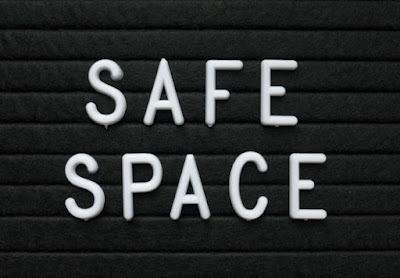What Kind Of Empire? The thing for Kiwis to decide is what kind of empire they want to belong to. The kind that, while offering its own citizens democratic rights, demands absolute obedience from its “friends”? Or, the kind that, while authoritarian at home, takes a relaxed attitude to the domestic political arrangements of its economic “partners”?
UNDERSTANDING AUTHORITARIANISM is challenging. For New
Zealanders especially, raised in one of the world’s oldest democracies, official
hostility to political liberty is difficult to comprehend. Likewise the
carefully organised suppression of individuals and groups deemed hostile to the
state. We bridle at the brutality and injustice that characterise authoritarian
regimes. “Something must be done!”, we cry. “Cease trading with these butchers!
Boycott their sports teams! Send their ambassador packing! Shut down their
embassy!” As a means of letting off steam it’s a highly effective strategy. As
a useful means of conducting diplomacy – not so much.
The People’s Republic of China, like practically all the
previous iterations of Chinese sovereignty, going back nearly 4,000 years, is a
rigorously authoritarian state. The Communist Party, within which all meaningful
political activity in contemporary China takes place, prizes order and
obedience no less than any of the country’s previous rulers. Accordingly,
disorder and disobedience are met with swift and ruthless retribution. Though
the tenets of Maoism no longer constitute the basis of CPC economic policy, Mao
Zedong’s methods of keeping the Chinese people in line continue to be much
admired – and emulated. Authoritarianism ensures that the continuities of
Chinese history continue to greatly outnumber its discontinuities. The Chinese
people would have it no other way.
How does this relate to the treatment of the Uighur people
of Xinjiang? Why have the Chinese authorities gone to such extreme lengths to
suppress the cultural and religious traditions of this far-flung ethnic
minority? The simple answer? For precisely the same reasons the USA invaded
Afghanistan and Iraq, and is currently imposing swingeing economic sanctions
upon Iran. Fear of Islamic extremism. Beijing is also deeply concerned about
the opportunities for destabilisation which the spread of Islamic extremism offers
China’s enemies.
Beijing looks westward and sees the new nation states of Kazakhstan, Kyrgyzstan,
Tajikistan, Uzbekistan and Turkmenistan – all of them born out of the
collapse of the Soviet Union in 1991. The home of the Uighurs, the “autonomous
region” of Xinjiang borders no less than three of these Soviet successor
states: Kazakhstan, Kyrgyzstan and Tajikistan. Rightly or wrongly, Beijing is
convinced that Uighur nationalism, allied with Islamic extremism, constitutes a
clear and present danger to China’s territorial integrity – and, hence, to its
national security. Sporadic outbreaks of nationalistic Uighur violence have
only reinforced Beijing’s fears. The mass incarceration of Uighurs in specially
constructed “re-education” complexes is the Communist Party’s profoundly authoritarian
response.
Those Westerners affronted by Beijing’s actions should, however,
ask themselves which is worse: China’s “re-education complexes”, or the
hundreds-of-thousands of Afghans and Iraqis killed by the American military?
They might also like to consider the moral calculus which allowed the USA to pour
munitions into Syria while the country descended into a prolonged civil war
which killed tens-of-thousands, displaced upwards of half the civilian population
and provided the murderous ISIS “Caliphate” with a territorial base of
operations. Beijing’s hope is to “educate” its Uighur citizens out of Islamic
extremism; Washington’s preference is to deliver its “lessons” via drone
strikes and proxy Jihadi fighters.
New Zealand diplomacy, if it has any meaningful role to play
at all vis-à-vis the plight of the Uighurs, might consider working more
closely with the Russian Federation which, while no friend of Islamic
extremism, continues to have strong economic ties with the “Stans”. If Moscow
could reassure Beijing that it would use its good offices to restrain
nationalist and religious fervour in the territories adjoining Xinjiang,
Beijing, in turn, might be persuaded to relax its iron grip on the Autonomous
Region. Because Beijing has great respect for New Zealand’s record of diplomatic
independence, the prospect of Jacinda Ardern assuming the role of “honest
broker” would almost certainly return better dividends than shouting derogatory
anti-Chinese slogans from the side-lines.
Such a course of action would obviously outrage our Five
Eyes partners. The expectation of Washington, London and Canberra is that the
Russians will, at all times, be treated as international pariahs. One has only
to recall the severe “telling-off” administered to Foreign Minister Winston Peters
when he dared to suggest that New Zealand and the Russian Federation could
secure considerable mutual benefits by negotiating their own free trade
agreement.
This scolding from our “friends” raises the question of what
– exactly – New Zealand gains from its attachment to the Anglo-Saxon empire. After
all, the Americans have consistently refused to admit our dairy products in
anything like the quantities authorised by the NZ-China FTA. Perhaps the time
has come to pose the question of whether or not the membership fee of the
Anglo-Saxon “club” has grown too high for New Zealand to go on paying?
The thing for Kiwis to decide is what kind of empire they
want to belong to. The kind that, while offering its own citizens democratic
rights, demands absolute obedience from its “friends”? Or, the kind that, while
authoritarian at home, takes a relaxed attitude to the domestic political
arrangements of its economic “partners”? The United States is an empire of the
first kind – and it is growing weaker. China belongs to the second kind and, within
the next twenty years or so, seems certain to become the world’s richest and most
powerful nation state – albeit an authoritarian one.
This essay was originally posted on The Daily Blog
of Friday, 29 November 2019.












